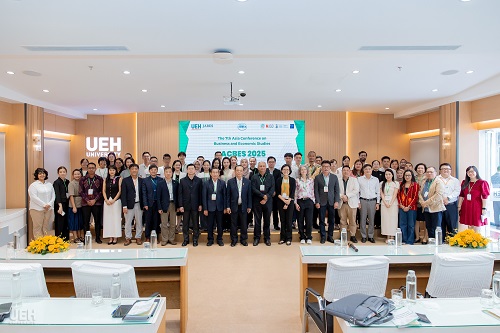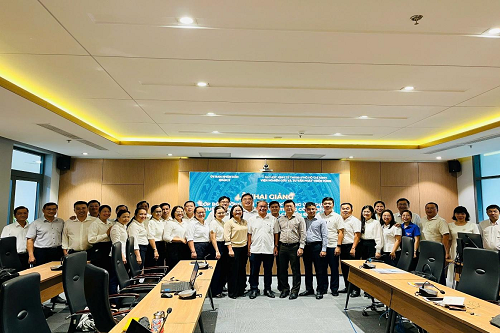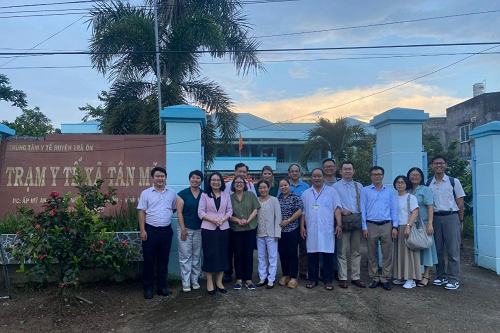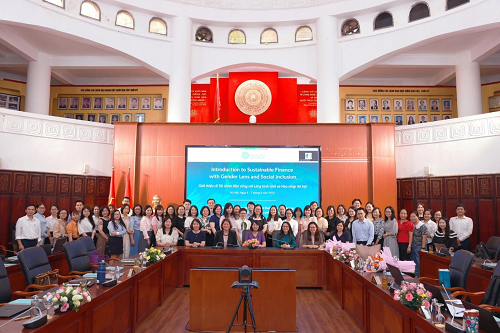
Assistance from ICTs for Reviving Aviation Connectivity – Part 2: ICT Applications and Policy Recommendations
10 Oct, 2022
Looking back at the period of the Covid-19 pandemic with its global effects, the aviation industry is one of the areas that have been affected rather badly. However, in another aspect, the restrictions on exposure have promoted the application of information and communication technologies (ICTs) which are widely applied in automation as well aviation business data as exchange and analysis. In part 2 of the article, the author points out the importance of proper investment in ICTs in restoring connectivity in the aviation industry as well as long-term business development strategies; at the same time, proposing useful recommendations for businesses.
Impacts of ICTS application in civil aviation
* Positive impacts
The application of ICTS helps airlines improve customer service and business efficiency. According to the Google analysis, travelers often use 22 websites to research an itinerary at diversely different services before booking tickets.
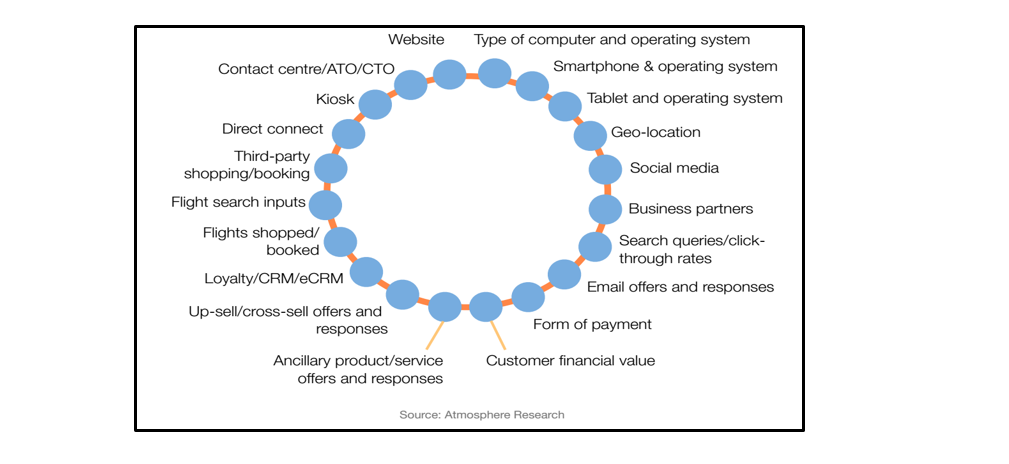
Figure 1. Set of airline data forms for data-driven commerce. Source: Henry H. Harteveldt (2012).
It can be identified that ICTS plays an important role in deciding whether customers buy and use the services of civil airlines in particular and travel agencies and travel agents in general. Currently, airlines rely on databases to set up and build solutions to improve services and identify and select customers for airline offers. The data forms listed by the Atmosphere research consortium include the primary forms illustrated in Figure 1.
The features that the application of the ICTs system helps innovate are as follows: E-tickets/paperless tickets, transparent and transparent pricing driven by proactive and responsive profit management; single ticket with no stay restrictions or Saturday night stipulations; commission limit and net fare announcement; financial incentives for online self-booking, online auctions and promotions; powerful customer relationship management system; advertising online and in accordance with the context and individual audience; managing the entire supply chain electronically can enable all partners to benefit by reducing costs; increasing transaction accuracy and optimize business efficiency. In addition, equipping self-service kiosks applying ICTs helps firms increase productivity and operational capacity; reduce check-in time; support on-time departure and arrival flights; minimize check-in unit costs; improve customer satisfaction, and reduce costs. In-flight entertainment, communication, and continuous interaction will be important in the future. Technology can improve a customer’s entire travel experience. Frequent travelers demand faster check-in, greater flexibility, and control over their travel arrangements. Self-service kiosk application will increasingly assist travelers to book travel, check-in, get boarding pass, choose seat, check frequent flight miles, request service upgrade, purchase ticket receipt, print e-tickets, or check baggage – all without going through an agent.
In terms of the civil aviation industry, ICTs play an important role in airlines' strategic and operational management. They not only contribute to shaping all elements of the “marketing mix” but also define the strategic directions, partnerships, and ownership of airlines. Therefore, ICTs will be used flexibly before, during, and after the travel experience to serve passengers and strengthen the airline brand. ICTs enable airlines to establish global networks, serve their customers better and to communicate with their partners more effectively on a global basis. They will need to provide an “information structure” to work more closely with all existing stakeholders. As a result, airlines’ networking systems take advantage of the Internet, Intranet and Extnet to strengthen their position and their brands as well as to contribute to their profits.
* Negative impact
Currently, ICTS application in the aviation industry is increasing, airlines must provide the best customer service with the purpose of creating a brand and attracting customer loyalty. The application of ICTS makes firms face downward pressure to compete with each other, depending on the effectiveness of solutions that firms can obtain from ICTS companies. Moreover, the high cost of implementing a project of new and effective solutions is often long-term without the ability to be paid back in the short-term, requiring civil airlines to have a relatively high initial investment and challenges in investing in both a logistics system and a supply chain for the airline. In addition, IATA’s prediction that the civil aviation markets, by 2036, will grow mainly in Europe and Asia. According to researchers, European countries are at the center of the Industrial Revolution 4.0 as it is easy for them to invest in developing this system in the civil aviation industry. However, for some Asian countries listed as Thailand, Indonesia, India and China, investing in a good infrastructure system for this ICTS application is a big challenge.
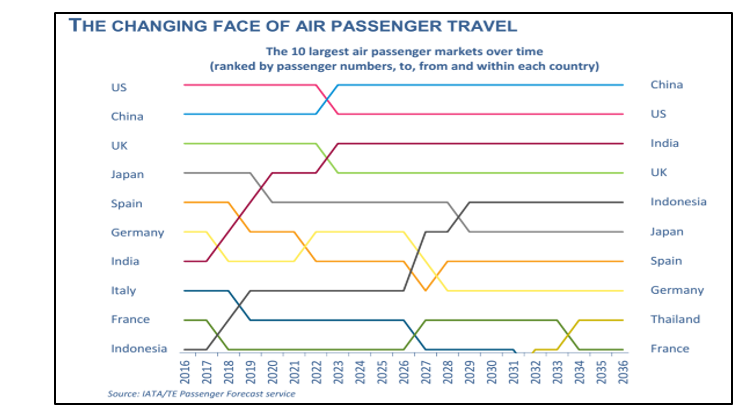
Figure 2. Forecast of the world’s top 10 passenger market by air until 2036. Source: Passenger growth forecasting service in IATA aviation industry 5/2017.
In addition to cost pressures, the application of ICTS as well as the Industrial Revolution 4.0 reduces the need for human resources in this industry when everything is automated listed as: ticket purchase, check-in, baggage weighing, even dangerous jobs and so on, all of which cause difficulties in settling contract compensation for workers and widespread unemployment. For that reason, human beings tend not to accept full automation because they understand that this adoption will cause them to lose their jobs in the future.
In addition to the advantages of easy and transparent information sharing, the automatically shared data will be attacked by hackers and viruses, which will lead to data being stolen or deleted; the current information technology hardware infrastructure is not strong enough to support this Industrial Revolution 4.0.
Suggested solutions for effective application of ICTs
Based on the analysis, the author proposes policy recommendations to effectively apply ICTs as follows:
* In terms of the aviation industry
- It is necessary to take flexible measures in case of extraordinary circumstances, which must comply with the laws of countries and international aviation associations, and regularly update new provisions of the law on communication and information channels or systems industry communication. Connecting airlines and government organizations in different countries through regular and effective communication using information channels using ICTS.
- Set up an application so passengers can check flight information and destination, declare health records, and update their status or virus test results with limited contact.
- Industry agencies like IATA, ICAO need to promote transparency and continuously update information related to Covid-19 listed as safe flight instructions, dangerous goods, instructions for health care documents declaration, passports vaccination program, product advice, or advice tailored to the situation on the main communication channel, the Website and through GDS systems like Timatic to airlines, including weekly newspaper report for the industry.
- Associations and alliances should provide airlines free three-month access to turbulence or riots at destinations.
- Free online training application for employees of member airlines to update knowledge and maintain contact.
- Combining the use of tools listed as Microsoft Teams, Zoom, and Google Meet so that companies have the opportunity to communicate simultaneously and to increase interactivity during the epidemic period and exchange experiences with industry experts to find out solutions in the industry as well as ICTs in particular.
- Diversify communication channels and methods to improve access to information for disadvantaged groups in society, listed as people with disabilities, the elderly, and other special people in society.
- Apply AI in interactive activities, customer decision-making activities, and process information analysis to advise airlines on sales strategies and new distribution systems NDC in the future.
- Improve and replicate ONE Order in transporting passengers to airlines; ONE Record needs to be quickly applied to allow stakeholders to update in-flight cargo information by one unique single digital ecosystem.
* In terms of airlines
- Build an information channel with customers in which customers have the most transparent information, 79% of customers think that they will continue to use that company’s services if they are provided with complete and timely information according to research Rockland Dutton represents IATA (IATA, 2020).
- It is necessary to pay attention to communication for disadvantaged people, listed as people with disabilities, the sick, and people with limited literacy or foreign languages , by applying translation software or necessary supporting tools.
- Enhance process automation before, during, and after the sale, especially in the epidemic context as well as the long-term development strategy. In particular, there should be communication and contact with distribution agents, and timely information support. Simultaneously handle out-of-regulation for payment agents and late financial statements. Accept cash deposits as a temporary solution to fill a gap in financial security.
- Orient the airlines in the Vietnamese industry that they should seek and apply automation solutions in aviation industry management to increase business efficiency as well as service satisfaction (quick, accurate, safe, and convenient). These solutions must be able to fully integrate international GDS gateways (Global Distribution System) listed as Saber, Amadeus, Travelport used in the aviation industry in particular, and travel partners listed as the current Vietnamese tour operators and hotels.
- Airline companies should consider choosing full applications for daily operations listed as detailed financial reports, automatic invoicing, and financial reporting, which can be assigned daily work schedules and tracking of employees’ target achievement level, effective internal communication. Priority should be given to solutions capable of storing and finding information, a CRM (Customer Relationship Management) tool that helps track customer information; at the same time, allowing sending booking confirmations by text message, email and other online communication channels.
- Advices related to how to increase the efficiency of internal communication, airlines should consider designing a solution to support meetings, online chats internally 24/24 to solve urgent cases (for international visitors and extra non-working hours) as well as a security decentralization system for leaders from grassroots, middle to senior levels to avoid theft or leakage of important business data.
Please refer to full research Assistance from ICTs for Aviation Connectivity Restoration at here. Author: Nguyễn Thị Thu Thuỷ – Faculty of Tourism, UEH School of Business. This writing is in series of spreading research and applied knowledge from UEH with “Research Contribution For All – Nghiên Cứu Vì Cộng Đồng” message, UEH would like to invite readers to follow Newsletter ECONOMY NO #62.
News, photos: Author, UEH Department of Marketing – Communication
Voice of: Ngọc Quí


